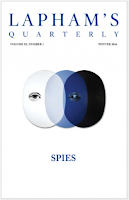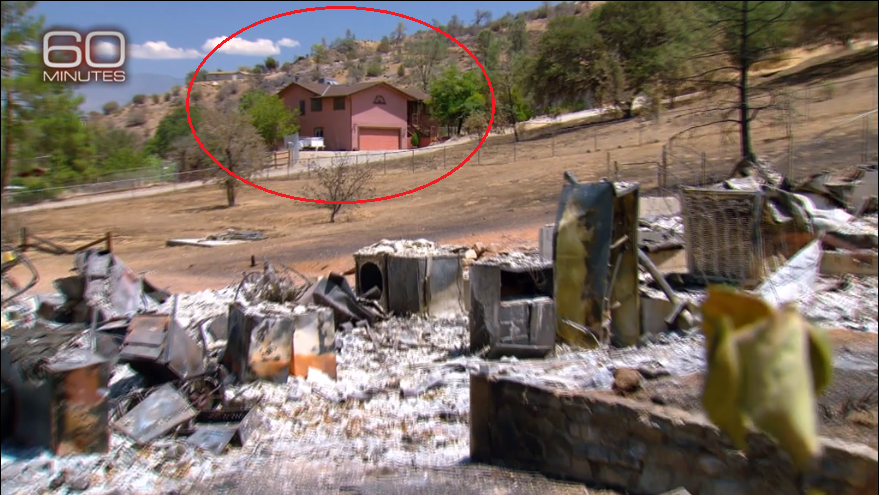Is Privacy or Surveillance The Issue? A Link Roundup
Which is the bigger priority for our society - privacy or surveillance? In other words, is "privacy" important because a) lack of privacy does harm to a person, or b) surveillance conducted by institutions corrupts the ones doing the spying? In the table below we lay out article quotes and recent anecdotes, and list whether it was more illustrative of the importance of privacy or the corrupting powers of surveillance.
Getting these fleshed out is important. As Solove says in his widely cited paper 'I've Got Nothing to Hide', and Other Misunderstandings of Privacy, "In many cases, privacy issues never get balanced against conflicting interests because courts, legislators, and others fail even to recognize that privacy is implicated. It is therefore of paramount importance that we continue to work on developing a conception of privacy." Solove indeed developed a fine four-part conception of the harms resulting from lack of privacy in said paper.
And the next time a younger person asks you, the adult expert, why privacy is important? Be warned - it's difficult to articulate an answer in one sound byte (Arthur Miller and many writers vented their privacy-defining frustrations for posterity.) But we're getting closer.
The writer of this blog uses initials to keep writing life compartmentalized away from my work life. The writer of this blog was victim of identity theft in 2011 and tightened the privacy settings on Facebook, only to discover later those were not privacy settings so much as "privacy theater" settings designed to make users "feel" safe. The writer of this blog, who works gig contracts and needs to use the phone to line up work, receives at least three phone calls per day either from an auto-dialer phone spam company or from someone who bought my data (why they would buy my boring data I do not know.) (After all, Facebook handed our data away for free -- "We don't sell your data," MZ told Congress -- our Facebook privacy settings be damned.) The writer of this blog had at one time, nosy family members who mean well but who, at one time, I needed privacy from. Facebook was new and my life was updated to them without my consent. The writer of this blog has nothing to hide but absolutely would like a little more privacy.

This work by AJ Fish is licensed under a Creative Commons Attribution-NonCommercial 4.0 International License.
Getting these fleshed out is important. As Solove says in his widely cited paper 'I've Got Nothing to Hide', and Other Misunderstandings of Privacy, "In many cases, privacy issues never get balanced against conflicting interests because courts, legislators, and others fail even to recognize that privacy is implicated. It is therefore of paramount importance that we continue to work on developing a conception of privacy." Solove indeed developed a fine four-part conception of the harms resulting from lack of privacy in said paper.
And the next time a younger person asks you, the adult expert, why privacy is important? Be warned - it's difficult to articulate an answer in one sound byte (Arthur Miller and many writers vented their privacy-defining frustrations for posterity.) But we're getting closer.
| Example | Privacy, Surveillance, Both? |
Lapham's Quarterly, the deep-dive encyclopedia of our information age, offers no issue dedicated to privacy or personal exposure. It did, however, publish an issue on Spies with a delectable story by Edgar Allen Poe, an essay by Edward Snowden and many other entries. |
Surveillance |
The TSA has been quietly tracking Americans who are not on government watch lists: "The program is called 'Quiet Skies,' which directs federal air marshals to track Americans on domestic flights who may be affiliated with someone on a watch list or whose travel patterns mirror those of suspected terrorist." theverge.com |
Surveillance |
The Conversation, a 1970's Francis Ford Copolla movie highlights what happens not to the people being spied upon, but the spy himself. imdb.com |
Surveillance |
When the spies are algorithms, not humans, it occasionally erodes privacy even more. "So, for example, a psychiatrist told me her patients were being recommended to each other as friends on Facebook, and that's because Facebook has all this contact information, and it's kind of chaining it together. So it knew that her patients had somebody in common." marketplace.org |
Privacy |
The best episode, hands down, of the Ana Marie Cox podcast "With Friends Like These" featured journalist James Risen as guest. His favorite movie The Lives of Others focuses on both the spies and the spied upon in 1980s East Germany. "In 1984 East Berlin, an agent of the secret police, conducting surveillance on a writer and his lover, finds himself becoming increasingly absorbed by their lives." imdb.com |
Privacy and Surveillance |
Caroline Kennedy and Ellen Alderman in their introduction to their book The Right to Privacy wrote: "Why we as Americans so cherish our privacy is not easy to explain. Privacy covers many things. It protects the solitude necessary for creative thought. It allows us the independence that is part of raising a family. It protects our right to be secure in our own homes and possessions, assured that the government cannot come barging in. Privacy also encompasses our right to self-determination and to define who we are. Although we live in a world of noisy self-confession, privacy allows us to keep certain facts to ourselves if we so choose. The right to privacy, it seems, is what makes us civilized." |
Privacy |
|
GWU Law Professor Daniel Solove, includes in his article "10 Reasons Why Privacy Matters" these two: 9. Ability to Change and Have Second Chances "Many people are not static; they change and grow throughout their lives. There is a great value in the ability to have a second chance, to be able to move beyond a mistake, to be able to reinvent oneself. Privacy nurtures this ability. It allows people to grow and mature without being shackled with all the foolish things they might have done in the past. Certainly, not all misdeeds should be shielded, but some should be, because we want to encourage and facilitate growth and improvement." 10. Not Having to Explain or Justify Oneself "An important reason why privacy matters is not having to explain or justify oneself. We may do a lot of things which, if judged from afar by others lacking complete knowledge or understanding, may seem odd or embarrassing or worse. It can be a heavy burden if we constantly have to wonder how everything we do will be perceived by others and have to be at the ready to explain." |
Privacy |
In 2014 Edward Snowden disclosed that intelligence employees, working for the NSA and its British counterpart, when they serendipitously intercepted nude cell phone photos of innocent civilians shared the photos between analysts with little hesitation, for purposes of amusement.. "It’s never reported, nobody ever knows about it, because the auditing of these systems is incredibly weak. Now while people may say that it’s an innocent harm, this person doesn’t even know that their image was viewed, it represents a fundamental principle, which is that we don’t have to see individual instances of abuse. The mere seizure of that communication by itself was an abuse." Snowden also asked of colleagues before blowing the whistle, indicating snooping can take on a life of its own, “Why are we intercepting more American communications than we’re intercepting Russian communications?” |
Surveillance |
Before Snowden blew the whistle on the NSA, an older employee named Thomas Drake attempted to convince his superiors, and intelligence committee members in congress, that the NSA could collect fewer data points and still catch terrorists. As Smithsonian magazine reported, for bringing up this idea Thomas Drake's house was raided, he had to stand trial and more: "In November 2007, federal agents raided Drake’s house. He has said they questioned him about the leak to the New York Times regarding warrantless wiretapping and that he told them he had not spoken to the Times. He has also said he told them he provided unclassified information about Trailblazer to the Sun. The government’s investigation continued, and in April 2010 a federal grand jury in Baltimore issued the indictment against him." |
Privacy and Surveillance |
The writer of this blog uses initials to keep writing life compartmentalized away from my work life. The writer of this blog was victim of identity theft in 2011 and tightened the privacy settings on Facebook, only to discover later those were not privacy settings so much as "privacy theater" settings designed to make users "feel" safe. The writer of this blog, who works gig contracts and needs to use the phone to line up work, receives at least three phone calls per day either from an auto-dialer phone spam company or from someone who bought my data (why they would buy my boring data I do not know.) (After all, Facebook handed our data away for free -- "We don't sell your data," MZ told Congress -- our Facebook privacy settings be damned.) The writer of this blog had at one time, nosy family members who mean well but who, at one time, I needed privacy from. Facebook was new and my life was updated to them without my consent. The writer of this blog has nothing to hide but absolutely would like a little more privacy.

This work by AJ Fish is licensed under a Creative Commons Attribution-NonCommercial 4.0 International License.




